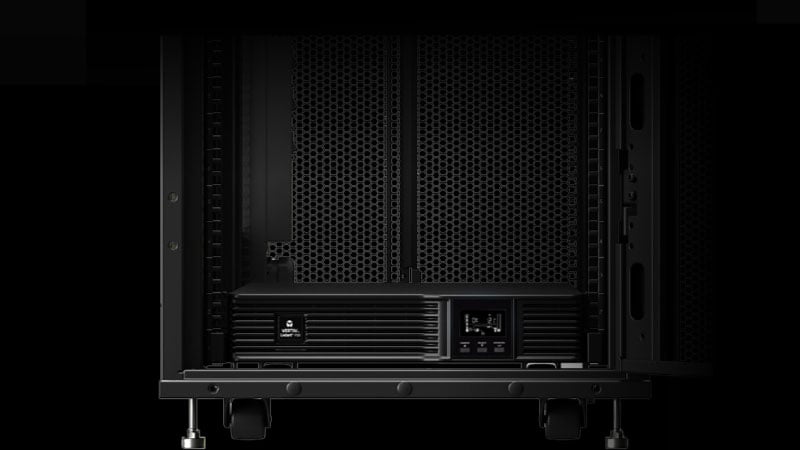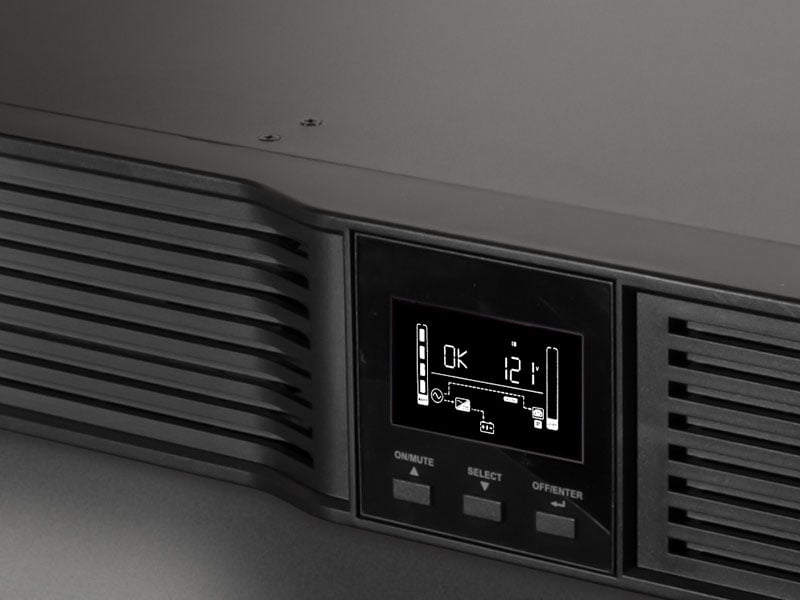While known for powering laptops and mobile phones, lithium-ion batteries are now changing the field of Uninterruptible Power Supply (UPS) systems for the better.
This rechargeable battery addresses the drawbacks of the traditional Valve-Regulated Lead Acid (VRLA) batteries commonly used for UPS systems. While VRLAs are less expensive, these heavier batteries no doubt consume more real estate, require more intensive cooling, and need more frequent replacement.
Let’s take a close look at the practical benefits of using lithium-ion batteries for UPS.
More compact, lightweight, and flexible
Lithium-ion batteries weigh 40% to 60% lighter and have a 40% smaller footprint than their VRLA counterparts. This translates into a remarkable power density level, where less space is needed to deliver the same amount of power.
With this space-saving feature, UPS and battery installation is made simpler and more flexible. There is no need for costly structural building reinforcement that VRLA batteries require. Less space devoted to UPS systems also gives way to bigger space for revenue-generating activities.
Lasts longer
Lithium-ion batteries have a significantly longer lifespan--around twice or thrice that of VRLA batteries on average. Compared to a traditional VRLA battery technology that typically lasts three to five years, lithium-ion technology can provide a battery service life of eight to ten years (or longer), often outlasting the UPS itself. This essentially makes the UPS almost maintenance-free with fewer or possibly no battery replacements throughout its lifespan. Unlike VRLA batteries, Lithium batteries offer a high cycle life, making it suitable for many applications where frequent charge and discharge cycles are expected.
Resilient to higher temperatures
Lithium-ion batteries can operate normally at temperatures of up to 104°F without sacrificing performance. This is a clear advantage of this battery technology over VRLA batteries, which shed off about half their lifespan for every 15°F temperature rise over 77°F.
Since lithium-ion batteries have a wide operating temperature range, they become convenient for more extreme, non-traditional settings and facilities that don’t have enough cooling space.
Contributes to a Lower Total Cost of Ownership
Regarding the total cost of ownership (TCO), lithium-ion batteries can provide up to 50% savings over their life expectancy. This is primarily due to their longer lifespan, high-temperature resilience, reduced maintenance expenses (with fewer or no battery replacement), and reduced installation expenses. Although VRLA batteries can surely save you money upfront, think of the bigger picture and consider the TCO.
Comes with advanced integrated battery management system
Unlike VRLA batteries, lithium-ion batteries come with an advanced integrated battery management system (BMS). This provides an accurate picture of the battery's health and runtime and protects the battery cells against current, temperature, and over- or under-charging. The BMS continuously adjusts battery charging to make the most out of performance and battery life.
Faster to recharge
UPS batteries need to be recharged as quickly as possible to full capacity. While VRLA batteries can take over 12 hours to charge from 0% to 90% of full runtime capacity, lithium-ion batteries take only 2 to 4 hours to recharge. That reduces the overall risk of experiencing an outage before your UPS batteries have been fully charged.
The cutting-edge lithium-ion battery technology has gone a long way to the advantage of many industries. With the many benefits it offers, a lithium-ion powered UPS is a must-have to secure your critical operations and lessen your operational costs. Click here to learn more about UPSs with lithium-ion batteries.
References:
https://www.gep.com/blog/mind/lithium-ion-batteries-are-changing-the-face-of-power-backup





